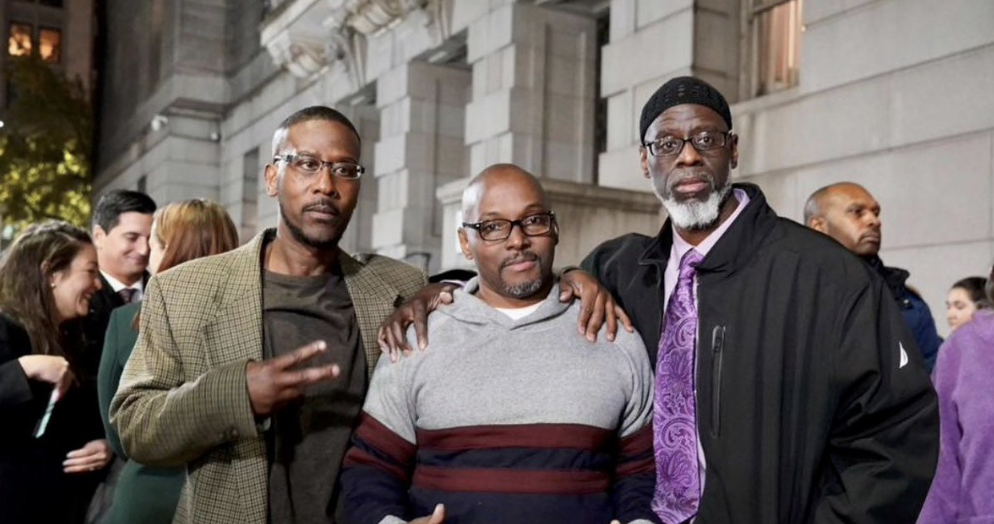After spending 36 years in prison for murder, three men are being released due to newly uncovered evidence.
Alfred Chestnut, Andrew Stewart, and Ransom Watkins were prosecuted as 16-year-olds on Thanksgiving Day in November 1983, following the death of 14-year-old DeWitt Duckett — who was shot in the neck traveling to a Baltimore junior high school, BBC reported and as written in a release from Baltimore State Attorney Marilyn Mosby.
36 years.
Alfred Chestnut, Andrew Stewart, Ransom Watkins.
They were just exonerated & proven completely innocent for a crime they did not commit. All the way back in 1983, as 16 year old boys they were framed by Baltimore Police and prosecutors for murder. pic.twitter.com/eCCQ4hxOzs
— Shaun King (@shaunking) November 26, 2019
This year, a letter was sent by Chestnut to Baltimore's Conviction Integrity Unit, detailing evidence he had found the previous year, Mosby explained. She went on to say police withheld and ignored reports identifying a different individual as the killer. Witnesses during the trial also failed to identify Chestnut, Stewart, and Watkins — then young teens — in photo line-ups, BBC said.
"These three men were convicted, as children, because of police and prosecutorial misconduct," Mosby said. "[The] detectives targeted the three men, all 16-year-old black boys, using coaching and coercion of other teenage witnesses to make their case."
Chestnut and Watkins spoke honestly in Mosby's release, on how they felt to hear the news.
“I feel like all these years I’ve been saying the same thing. Finally, somebody heard my cry. I give thanks to God and Marilyn Mosby: She’s been doing a lot of work for guys in my situation," Chestnut said.
“The things I had to go through, it was torture. There’s no other way to describe it. We held on to each other, that’s what got us through this journey when we needed each other," Watkins said.
Mosby refused to declare the release of the three then teens, now men, as a "victory." She instead said it was a moment to take "responsibility" for where all parties went wrong.
"On behalf of the state's attorney office, let me say to these three men, I am sorry. The system failed you. You should never have seen the inside of a jail cell," Mosby said.
The suspect who was identified as the potential killer died in 2002. Despite winning his freedom, Chestnut called for others who had been falsely accused to arrange a way to win it for themselves.
"It's a lot of guys that I left behind, that are in the same situation that I'm in," Chestnut said to CNN. "They need a voice. I had an opportunity, by the grace of God, to have someone who heard me."
Currently, the state of Maryland does not have legislation of compensation for those falsely convicted of a crime, though the Board of Public Works has the authority to direct compensation.
